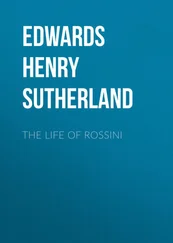Henry Bourne - The Life of Thomas, Lord Cochrane, Tenth Earl of Dundonald, Vol. II
Здесь есть возможность читать онлайн «Henry Bourne - The Life of Thomas, Lord Cochrane, Tenth Earl of Dundonald, Vol. II» — ознакомительный отрывок электронной книги совершенно бесплатно, а после прочтения отрывка купить полную версию. В некоторых случаях можно слушать аудио, скачать через торрент в формате fb2 и присутствует краткое содержание. Жанр: foreign_antique, foreign_prose, Биографии и Мемуары, на английском языке. Описание произведения, (предисловие) а так же отзывы посетителей доступны на портале библиотеки ЛибКат.
- Название:The Life of Thomas, Lord Cochrane, Tenth Earl of Dundonald, Vol. II
- Автор:
- Жанр:
- Год:неизвестен
- ISBN:нет данных
- Рейтинг книги:3 / 5. Голосов: 1
-
Избранное:Добавить в избранное
- Отзывы:
-
Ваша оценка:
- 60
- 1
- 2
- 3
- 4
- 5
The Life of Thomas, Lord Cochrane, Tenth Earl of Dundonald, Vol. II: краткое содержание, описание и аннотация
Предлагаем к чтению аннотацию, описание, краткое содержание или предисловие (зависит от того, что написал сам автор книги «The Life of Thomas, Lord Cochrane, Tenth Earl of Dundonald, Vol. II»). Если вы не нашли необходимую информацию о книге — напишите в комментариях, мы постараемся отыскать её.
The Life of Thomas, Lord Cochrane, Tenth Earl of Dundonald, Vol. II — читать онлайн ознакомительный отрывок
Ниже представлен текст книги, разбитый по страницам. Система сохранения места последней прочитанной страницы, позволяет с удобством читать онлайн бесплатно книгу «The Life of Thomas, Lord Cochrane, Tenth Earl of Dundonald, Vol. II», без необходимости каждый раз заново искать на чём Вы остановились. Поставьте закладку, и сможете в любой момент перейти на страницу, на которой закончили чтение.
Интервал:
Закладка:
That moral regeneration was needed Lord Cochrane already well knew, and he had not been a day in Greece before the knowledge was forced upon him afresh. The unworthy disposition of most of the men in power had never been more plainly shown, nor threatened more imminent danger to the independence of Greece, than at the time of Lord Cochrane's arrival. With a few notable exceptions, of whom Miaoulis was perhaps the chief, the Greek leaders had forgotten all their national duty in personal ambition and jealousy. If they united in parties, it was only because each one hoped that, as soon as his own party was triumphant, he himself would be able to obtain the mastery over all his associates.
Two factions, especially, prevailed in Greece at this time, which, partly from the circumstance that they were supported by unwise Philhellenes of the two nations, partly because their native members looked for their chief support to those nations, were known as the French and English parties.
Among Philhellenes the leading promoter of the French party was Colonel Fabvier, who was now, with some of the troops whom he commanded, defending the Acropolis from the siege of the Turks. He was an officer of considerable merit, with the interests of the Greeks at heart, but of surpassing vanity and ambition. His hope was to become the Napoleon of the East, to convert the whole male population of Greece into a huge army, with himself at its head. With him sympathized most of the military leaders, who, originally little better than brigands, found everything to gratify their present tastes and their future hopes in a scheme which would give them endless employment in lawless warfare and martial dominion. These, coming chiefly from the Morea, caused the faction also to be known as the Moreot party.
More formidable was the English party, with little that was English about it but the name. Its ambition was not military, but diplomatic, the possession of place and power in such ways as were then possible. Its real, if not avowed, leader was Prince Mavrocordatos, with an able abettor in his brother-in-law, Mr. Spiridion Trikoupes. All through the previous year Mavrocordatos and his friends had sought zealously to win for Greece the protection of England. They had corresponded to that end with Mr. Stratford Canning, the British ambassador at Constantinople, with Captain Hamilton, who was then stationed in Greek waters to watch the interests of English shipping, and with others. They had sent an irregular deputation to treat with the British Government, and had used all the means in their power, so far as foreign intervention was concerned, for the establishment of a smaller but more organized Greek nation than that which their rivals desired. Had that end been worthily sought, they would have deserved universal sympathy. But they showed by their conduct that they cared little for good government, or for the real interests of the community. They exercised their abilities and squandered their resources in schemes for selfish aggrandisement, and the possession of authority which was to benefit none but themselves. Many of their prominent members having studied statecraft, before the time of the Revolution, as Christian officials in the employment of Turkey, to whom the name Phanariot was given from the Christian quarter of Constantinople, the whole party acquired the name of Phanariot.
This latter party had all along hoped to make Lord Cochrane its tool. It was Mavrocordatos who first invited him to enter the service of the Greeks; and when that service was agreed upon no effort was spared to attach him to the group of partizans among whom Mavrocordatos was chief. Lord Cochrane, steadily refusing this, soon incurred their opposition, and to this opposition is to be attributed some of the unreasonable blame which was afterwards brought upon him. Much further opposition to him, moreover, was soon aroused by his, in like manner, refusing to become the creature of the other leading faction. He wisely resolved, from the first – and he maintained his resolution throughout – to belong to no party, but having devoted himself to the cause of the Greek nation as a whole, to seek only those objects which were for the good of all.
That resolution was soon put to the test. Immediately after his arrival on the 19th of March, great efforts were made to implicate him in the schemes of the Governing Commission, as it was called, which, having outrun the time appointed for its duration, was continuing to assert its authority in Egina, and to use that authority in the interests of the Phanariot party. Two days after that his partizanship was sought for the Moreot faction, which had set up a rival government, styled the National Assembly, at Hermione, under the joint leadership of Kolokotrones, Konduriottes, and Kolettes. On the 20th he was waited upon by the deputation named in the congratulatory letter which has already been quoted from.
"With his whole party," said Lord Cochrane's secretary, reporting this interview, "Kolokotrones rode down to the beach opposite the ship, and sent off to say he would there wait until a boat should be sent for him and his followers, the whole being about a hundred men, armed, according to the custom of the country, with pistols or daggers stuck in the left side of a sash or belt. The two boats sent being insufficient, not more than twenty came on board with the general. Kolokotrones was the spokesman, and there appeared to be great energy in his gesticulations, which did not correspond with the translation by Count Metaxas, who, from the smile on his countenance, seemed to hold in no great respect the mental acquirements of Kolokotrones. 'Greece,' said the latter, 'required a government to bring order out of chaos. The functions of the commission appointed by the last Legislative Assembly ought to have ceased. Its continuance in power was not legal, and consequently the members of the National Assembly had met at Hermione to name their successors; to which place it was requested that Lord Cochrane would proceed, in order to be present at their deliberations.' A letter to this effect, signed by the President of the Assembly, was then put into Lord Cochrane's hands.
Читать дальшеИнтервал:
Закладка:
Похожие книги на «The Life of Thomas, Lord Cochrane, Tenth Earl of Dundonald, Vol. II»
Представляем Вашему вниманию похожие книги на «The Life of Thomas, Lord Cochrane, Tenth Earl of Dundonald, Vol. II» списком для выбора. Мы отобрали схожую по названию и смыслу литературу в надежде предоставить читателям больше вариантов отыскать новые, интересные, ещё непрочитанные произведения.
Обсуждение, отзывы о книге «The Life of Thomas, Lord Cochrane, Tenth Earl of Dundonald, Vol. II» и просто собственные мнения читателей. Оставьте ваши комментарии, напишите, что Вы думаете о произведении, его смысле или главных героях. Укажите что конкретно понравилось, а что нет, и почему Вы так считаете.












